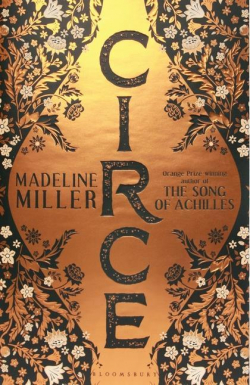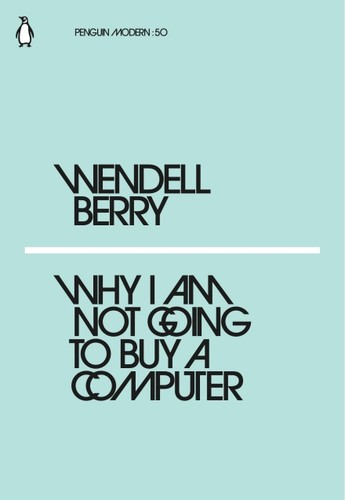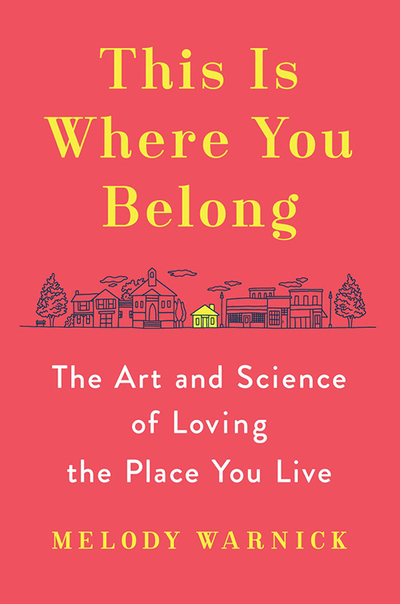
Circe by Madeline Miller
The daring, dazzling, and highly anticipated follow-up to the New York Times bestseller The Song Of Achilles that briliantly reimagines …
This link opens in a pop-up window

The daring, dazzling, and highly anticipated follow-up to the New York Times bestseller The Song Of Achilles that briliantly reimagines …
Why I picked it up ##
Mel told me I should read it!
## What I liked about it ##
Super fast read. The chapters are short. The book is short. The whole thing seems engineered to read in a single weekend.
The story was suspenseful and interesting. I really liked how it showed that you can't really know a person, or how they'll react in a crisis, and how everybody has a tiny bit of bad in them, and everybody processes trauma in their own way.
Made me feel strong feelings of disgust toward the "bad guys."
Also, it somehow immediately established a cast of up to 12 main characters, with two or three auxiliary characters on the side, in such a way that I had no trouble at all remembering who was who.
## What I didn't like about it ##
Finn as a narrator worked 90% of …
I think that if I lived in New York, or if I had even been there once, I would have considered it great. As it is, this was as fictional a setting as any other.
The ending might have been the best ending for the story Jemisin was telling, but it felt very sudden and rushed and glossed over to me.
## Why I Picked It Up ##
Read all of the Fifth Season books and Jemisin instantly became one of my favorite authors. I was excited to see what she did with some more realistic, urban fantasy.
## What I Liked ##
I like the premise of sort of modern gods, living embodiments of the Great Cities.
## What I Didn't Like ##
Aislyn was creepy. I never could tell whether she was despicable or sympathetic. Maybe this should go under What I Liked. She was an interesting character.
…
I think that if I lived in New York, or if I had even been there once, I would have considered it great. As it is, this was as fictional a setting as any other.
The ending might have been the best ending for the story Jemisin was telling, but it felt very sudden and rushed and glossed over to me.
## Why I Picked It Up ##
Read all of the Fifth Season books and Jemisin instantly became one of my favorite authors. I was excited to see what she did with some more realistic, urban fantasy.
## What I Liked ##
I like the premise of sort of modern gods, living embodiments of the Great Cities.
## What I Didn't Like ##
Aislyn was creepy. I never could tell whether she was despicable or sympathetic. Maybe this should go under What I Liked. She was an interesting character.
Like I said earlier, I didn't care the ending that much. Felt super rushed.
## Who I'd Recommend It To ##
Any big fans of New York City. If you know anything about the boroughs, you'll probably enjoy how they work together and relate to each other.
Urban fantasy fans.
Anybody who wants to see representation in fantasy: BIPOC main characters, LGBTQ and trans characters.
Everybody's the hero of their own story.
## Why I picked it up ##
Mel told me she liked it, and wanted to talk to me about it
## What I liked about it ##
Nuance of character. Alix maintained a little bit of likability and sympathy right up to the very end.
Briar was cute as hell. I usually don't like the precocious kid trope but I guess it worked well here because she wasn't especially precocious. She was just a normal 3 year old.
## One thing I want to remember ##
The feeling of great sadness at the end when Emira spelled out why everybody in this book was miserable: "And some days, Emira would carry the dread that if Briar ever struggled to find herself, she'd probably just hire someone to do it for her."
Kelly relied on black people and black culture to define himself. …
Everybody's the hero of their own story.
## Why I picked it up ##
Mel told me she liked it, and wanted to talk to me about it
## What I liked about it ##
Nuance of character. Alix maintained a little bit of likability and sympathy right up to the very end.
Briar was cute as hell. I usually don't like the precocious kid trope but I guess it worked well here because she wasn't especially precocious. She was just a normal 3 year old.
## One thing I want to remember ##
The feeling of great sadness at the end when Emira spelled out why everybody in this book was miserable: "And some days, Emira would carry the dread that if Briar ever struggled to find herself, she'd probably just hire someone to do it for her."
Kelly relied on black people and black culture to define himself. Alix desired forgiveness and approval of black people.
Emira herself struggled to find herself, but did so by staying true to the love she has for others and the love her friends have for her.
## Who I'd recommend it to ##
Anybody interested in the subtleties of race relations. Or anybody. It's a good book.
Reading tip: read the first 40% as fast as possible. It goes slow, but sets the stage for the next half, which goes super fast.

Incredibly eclectic. In the guise of a business book, Ari expounds on politics, philosophy, religion, food and recipes, friendship and loss, and, yes, business.
His partner Paul once told Ari that his talent is drawing meaningful connections between any two topics, and that talent is on display here in full force.
This volume feels like a glimpse into Ari's personal notebooks, in which he journals religiously every day, and in which he must create and fine tune these cross references and connections.
Indeed, one of the chapters consisted of recalling and reapplying some of the "secrets" from a previous volume to the central theme of this volume, self-management.
The end result is an encyclopedic almanac. Very holistic, and almost self-help in nature given the core theme.
Incredibly eclectic. In the guise of a business book, Ari expounds on politics, philosophy, religion, food and recipes, friendship and loss, and, yes, business.
His partner Paul once told Ari that his talent is drawing meaningful connections between any two topics, and that talent is on display here in full force.
This volume feels like a glimpse into Ari's personal notebooks, in which he journals religiously every day, and in which he must create and fine tune these cross references and connections.
Indeed, one of the chapters consisted of recalling and reapplying some of the "secrets" from a previous volume to the central theme of this volume, self-management.
The end result is an encyclopedic almanac. Very holistic, and almost self-help in nature given the core theme.

"How we come to feel at home in our towns and cities is what Warnick sets out to discover in …
Switched from watching the show on Prime to reading the book, and I'm really glad I did.
I hated the show. Too much real violence against real people. Way too actually misogynistic.
The book though, is good. The violence is still there but it's almost a little more slapstick, and definitely takes a back seat to the parody and satire of the superhero genre. The transparent cameos are funnier. There are still some really awful, squeamish parts. It's prime Garth, and in some ways it quickly out Preachers Preacher with the shock factor. But it also seems a little bit tongue in cheek.
Switched from watching the show on Prime to reading the book, and I'm really glad I did.
I hated the show. Too much real violence against real people. Way too actually misogynistic.
The book though, is good. The violence is still there but it's almost a little more slapstick, and definitely takes a back seat to the parody and satire of the superhero genre. The transparent cameos are funnier. There are still some really awful, squeamish parts. It's prime Garth, and in some ways it quickly out Preachers Preacher with the shock factor. But it also seems a little bit tongue in cheek.
A high four stars for the first book, with the batman parody and Stan Lee stand-in and a kinda/sorta nuanced take on homophobia, and hooooo boy the final scene with T.K. and the asteroid!
A low two stars for the second book with the Russian mafia. Totally out of place. Felt like filler, and nothing but an excuse for a bunch of dick jokes.
Actually, this whole volume was really an extravagant amount of dick jokes.
Edit: I'm docking this a star because I'm still thinking days later about how much I hate the way Little Nina is written. Literally her only character trait--besides being small and angry--is her sexuality, which is only ever presented as though it is comedic or grotesque, and I think was only in the story in the first place so that it could be the vehicle for her ultimate destruction at the hand of The …
A high four stars for the first book, with the batman parody and Stan Lee stand-in and a kinda/sorta nuanced take on homophobia, and hooooo boy the final scene with T.K. and the asteroid!
A low two stars for the second book with the Russian mafia. Totally out of place. Felt like filler, and nothing but an excuse for a bunch of dick jokes.
Actually, this whole volume was really an extravagant amount of dick jokes.
Edit: I'm docking this a star because I'm still thinking days later about how much I hate the way Little Nina is written. Literally her only character trait--besides being small and angry--is her sexuality, which is only ever presented as though it is comedic or grotesque, and I think was only in the story in the first place so that it could be the vehicle for her ultimate destruction at the hand of The Boys. Misogyny for the sake of misogyny.
Why I picked it up
It was included in that huge itch.io bundle for social justice
## What I liked about it
The art is whimsical really fun. There are a lot of novel mechanical aspects like the "luck of the draw" initiative system, and bidirectional combat rounds, and the Luck mechanic.
The entirety of the "setting" if there is one, and indeed the lion's share of the whole book, is its huge list of character backgrounds.
Overall, I find the whole thing very intriguing and entertaining, and would love to try out the included adventure scenario with my gaming group soon.
I read this the first time years ago when I was just starting my career in programming. I was enchanted by this strange new world of functors and monads, and it had a big impact on the way I think about data flow and error handling and side effects and declarative programming.
More of it "stuck" on re-reading.
I read this the first time years ago when I was just starting my career in programming. I was enchanted by this strange new world of functors and monads, and it had a big impact on the way I think about data flow and error handling and side effects and declarative programming.
More of it "stuck" on re-reading.